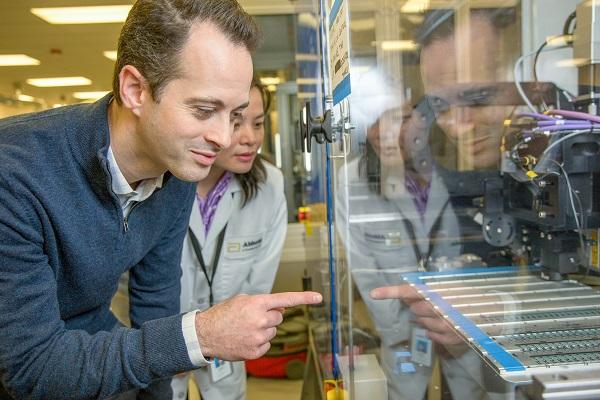3 R&D Medical Device Roles: Preparing for the Next 5 Years in the Ever-Evolving Industry
Published: Mar 05, 2019

You've worked hard in school and finally earned your degree. Now what? If you decide to work in the medical device industry, you'll join the ranks of one of the most exciting and rewarding fields in science and engineering today. Even in the four years since you started school, the industry and its careers have changed significantly. With everything evolving in the blink of an eye, sometimes choosing which specific role to pursue can feel like a guessing game.
Even professionals that already work in the field are being challenged to keep learning and expanding their knowledge base. So, embrace the opportunity; with a good working understanding of how each role is changing, even new university graduates should be well positioned to take on the role they want most.
Read on for insights into three of the most important roles from Marc Taub, Divisional Vice President of Product Development for Abbott Diabetes Care.
Systems Engineers: Keeping the Project Running
As projects become more and more complex, the job of a modern systems engineer is now more important than ever. Systems engineers keep all pieces of the project working seamlessly together and track interdependencies. They need expert-level knowledge of every component technology going into a particular project, and they need to consider both systems and team dynamics to know how to best use those technologies and meet the team's goals.
According to Taub, systems engineers ensure that "the product is designed right and that the right product is designed." Systems engineers will have both strong interpersonal managerial skills and a well-rounded education in the sciences. Medical device development includes more areas of science than ever before, so systems engineers today should be ready to face these challenges.
To prepare for the role of systems engineer, new graduates should focus on positions that give them high-level knowledge of how the industry operates. Demonstrate an eagerness to learn, and take on new responsibilities whenever available. If possible, consider investing (or requesting employer sponsorship) for training in project management and other relevant managerial skills.
Technologists: Specializing in Innovation
Technologists are the hyper-focused experts that make truly revolutionary advances possible. They need to be on the cutting edge of innovation in their specialty and apply that specific knowledge effectively. Technologists are expected to be actively learning at all times, educating themselves every day so their field doesn't leave them behind.
Taub says technologists need a "strong depth of technical knowledge combined with a natural curiosity and vision." That's because, as focused as they are, technologists still need to apply their expertise across multiple disciplines. This field is more specialized than ever and requires self-starters who are able to take on a single, specific challenge for an extended period of time.
To become a technologist, recent graduates need to distinguish themselves as having both an interest and aptitude for a particular subject matter area. That means focusing both educational choices and early professional ones toward a single goal — but don't worry if you haven't chosen the perfect university specialization. Aspiring technologists should expect their first year or more at a medical device company to be about finding their desired area of specialization, and then committing to it both on the job and with ongoing education.
Data Scientists: Always Seeking Information
The role of data scientists is probably evolving more quickly than any other right now in the medical device field. A data scientist's job is to pull actionable insight out of large databases of disordered information. The entire medical field today is focused on data collection, and that means data scientists are experiencing a huge surge in workload. For those who excelled in stats class, this might be the role for you.
By looking at health as data, and identifying statistical trends, data science can develop insights that researchers were not even trying to find. Taub says they "play an increasingly important role in identifying questions and developing hypotheses and techniques to address those questions." In other words, they are the data detectives of the medical device industry — and some of the most valuable team members in the field right now.
Prospective data scientists must prioritize an education in computing science, statistics and computational analysis, rooted in the scientific method. In school and on the job, becoming a data scientist means thinking abstractly about complex data and always working toward the project's overall goals.

If You Want to Hit a Moving Target, Plan Ahead
Virtually all STEM-field jobs are rapidly evolving, but remember that you're in good company; other applicants are in the same position. The field itself often has trouble identifying the attributes of its best candidates, and a good employer will always be open to an employee's desire to respecialize over time.
The only real way to ensure success is to stay ahead of the latest developments in the field and to keep lines of communication with management open once you get your foot in the door. One of the advantages of a dynamic field is that it gives you a lot of freedom within organizations — just keep your head up and your enthusiasm high, and you're bound to find a path that works for you.
This post was sponsored by Abbott.
